Best Good Habits for Language Learning and Speaking Practice
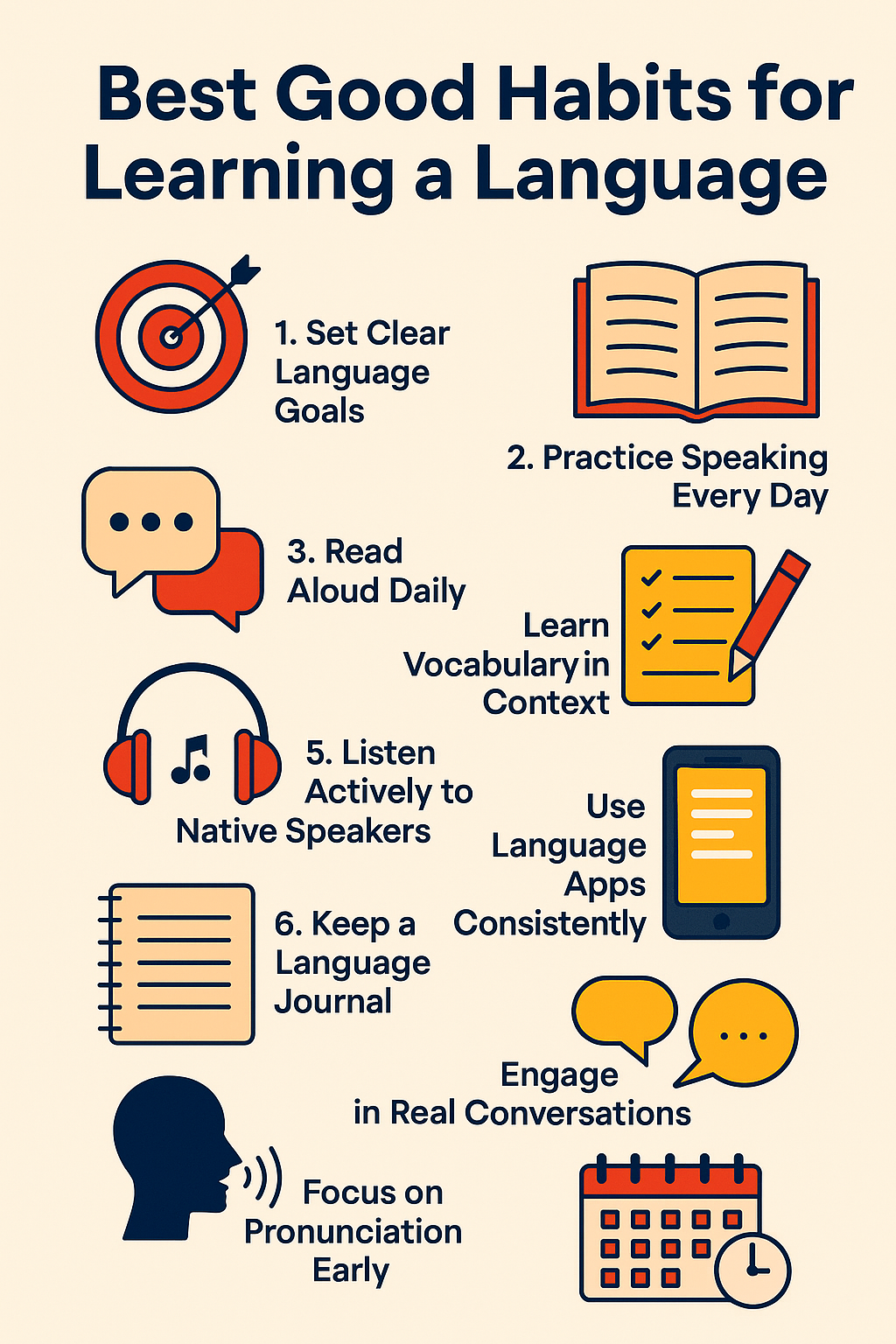
Learning a new language is a rewarding journey that opens up countless opportunities for communication, career growth, and cultural understanding. Whether you’re learning English, Hindi, Spanish, French, or any other language, adopting good habits can significantly improve your ability to speak fluently, remember vocabulary, and understand grammar.
In this article, we’ll explore the best good habits for language learning and how to practice them effectively for better speaking and communication.
🌟 1. Set Clear Language Goals
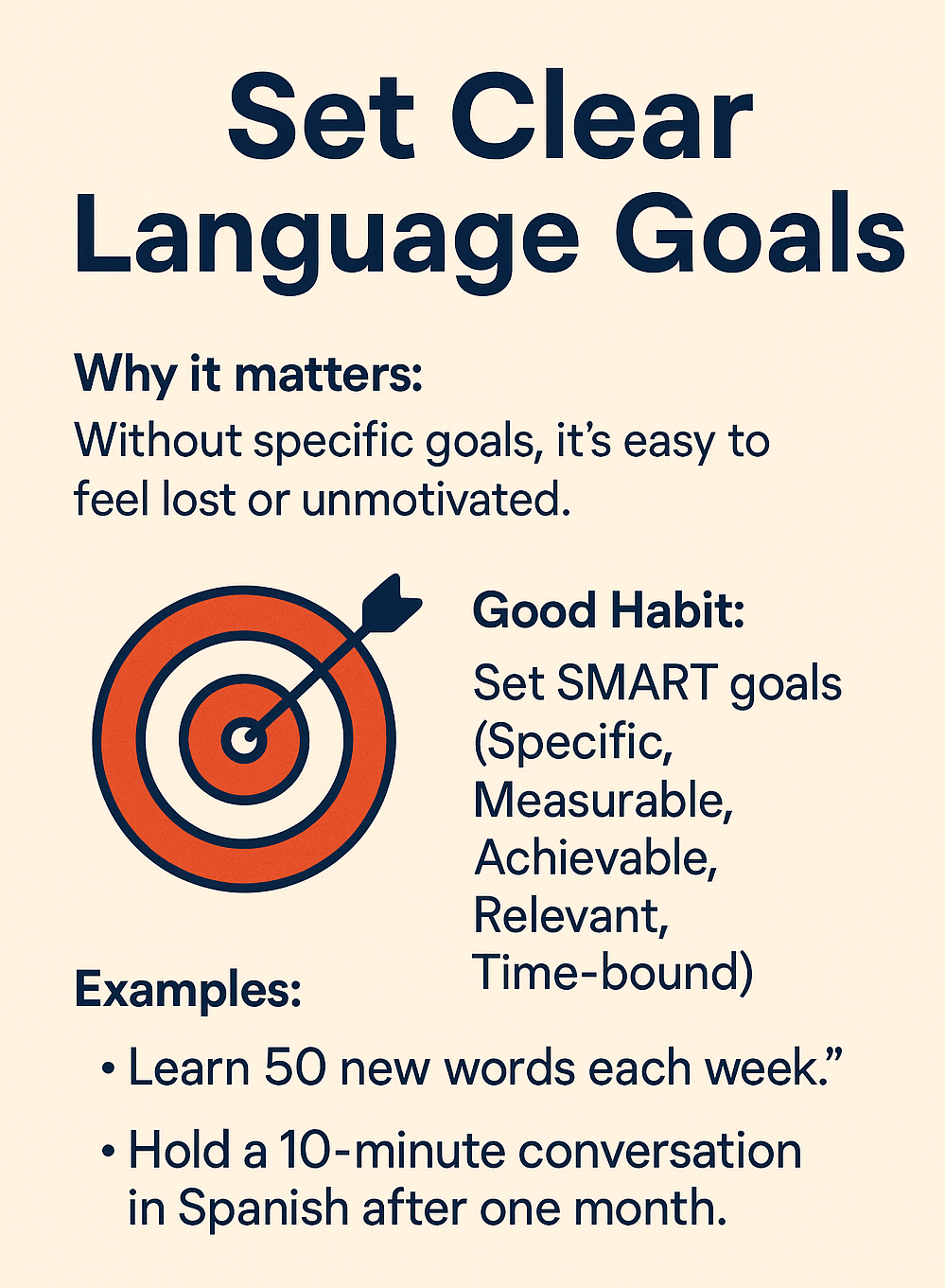
Why it matters:
Without specific goals, it’s easy to feel lost or unmotivated.
Good Habit:
Set SMART goals (Specific, Measurable, Achievable, Relevant, Time-bound).
Examples:
- “Learn 50 new words each week.”
- “Hold a 10-minute conversation in Spanish after one month.”
🗣️ 2. Practice Speaking Every Day
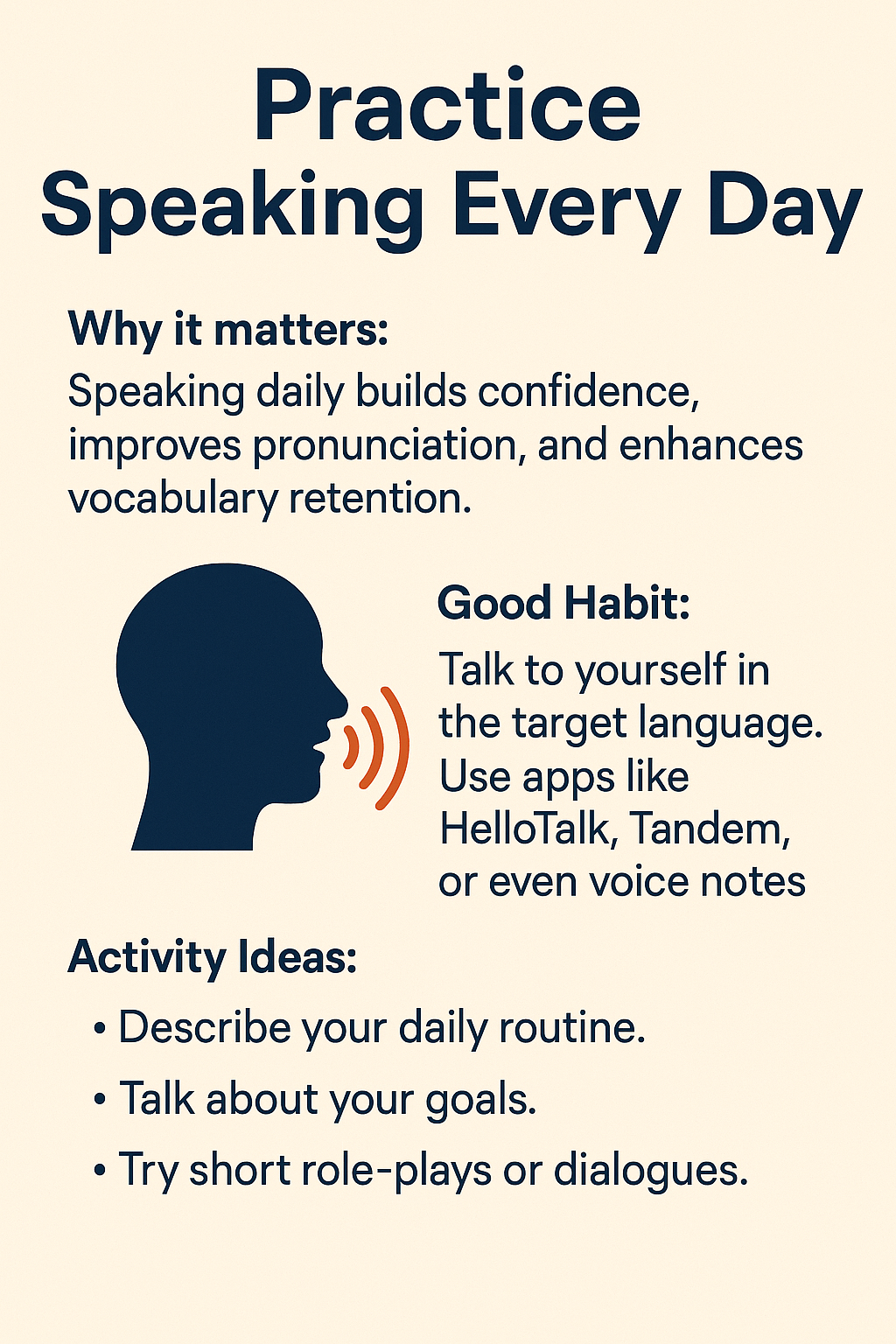
Why it matters:
Speaking daily builds confidence, improves pronunciation, and enhances vocabulary retention.
Good Habit:
Talk to yourself in the target language. Use apps like HelloTalk, Tandem, or even voice notes.
Activity Ideas:
- Describe your daily routine.
- Talk about your goals.
- Try short role-plays or dialogues.
📚 3. Read Aloud Daily

Why it matters:
Reading aloud improves speaking rhythm, pronunciation, and sentence structure.
Good Habit:
Read articles, books, or news in the target language for 10–15 minutes every day.
Benefits:
- Trains your tongue to pronounce new words.
- Improves listening and speaking speed.
🧠 4. Learn Vocabulary in Context
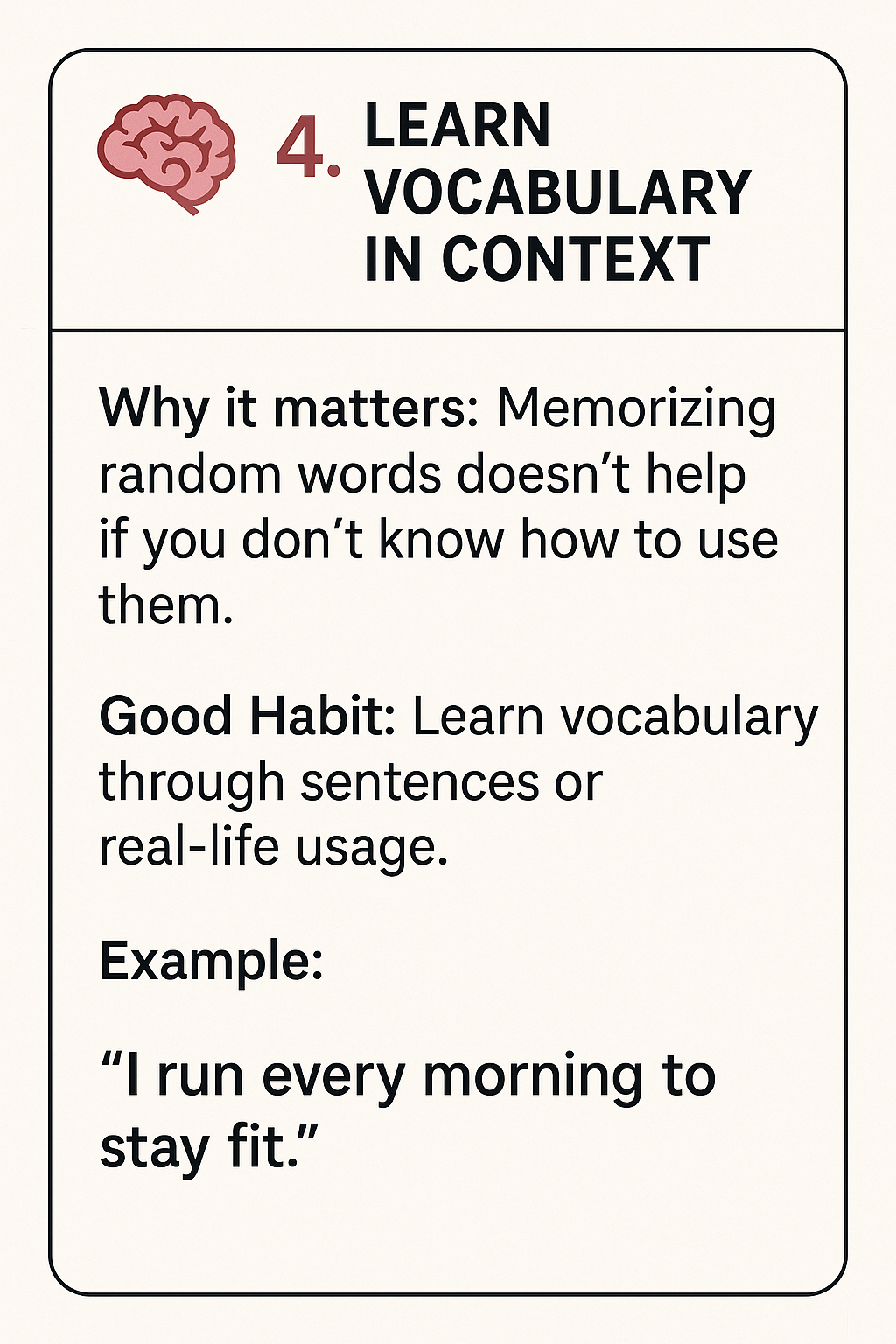
Why it matters:
Memorizing random words doesn’t help if you don’t know how to use them.
Good Habit:
Learn vocabulary through sentences or real-life usage.
Example:
- Instead of just “run,” learn: “I run every morning to stay fit.”
🎧 5. Listen Actively to Native Speakers
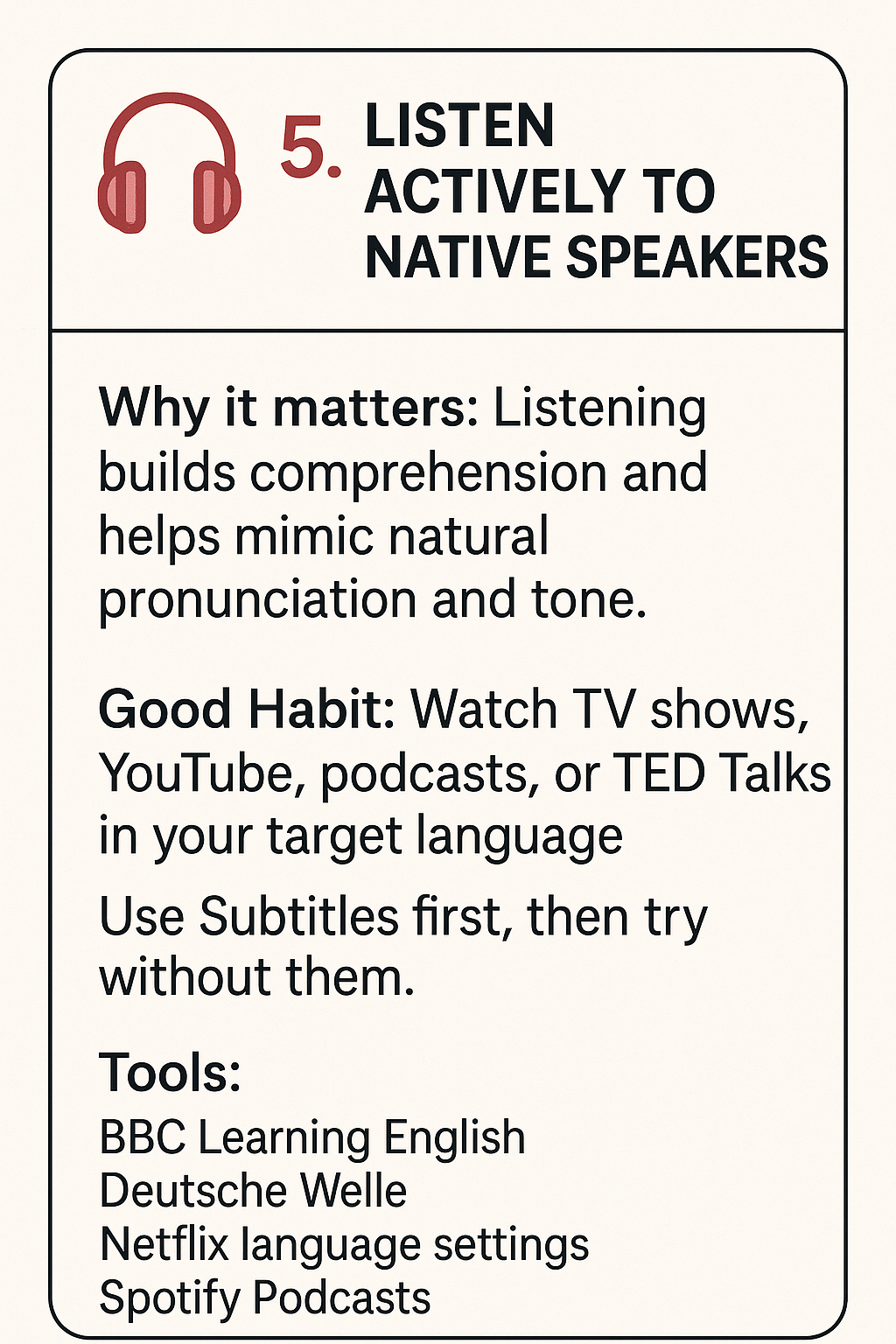
Why it matters:
Listening builds comprehension and helps mimic natural pronunciation and tone.
Good Habit:
Watch TV shows, YouTube, podcasts, or TED Talks in your target language.
Use Subtitles first, then try without them.
Tools:
- BBC Learning English
- Deutsche Welle
- Netflix language settings
- Spotify Podcasts
✍️ 6. Keep a Language Journal

Why it matters:
Writing improves grammar, vocabulary, and thought flow in the target language.
Good Habit:
Write 5–10 lines daily about:
- Your day
- A movie you watched
- Your opinion on a topic
Bonus Tip: Get your writing corrected by native speakers using apps like LangCorrect or Italki.
📱 7. Use Language Apps Consistently
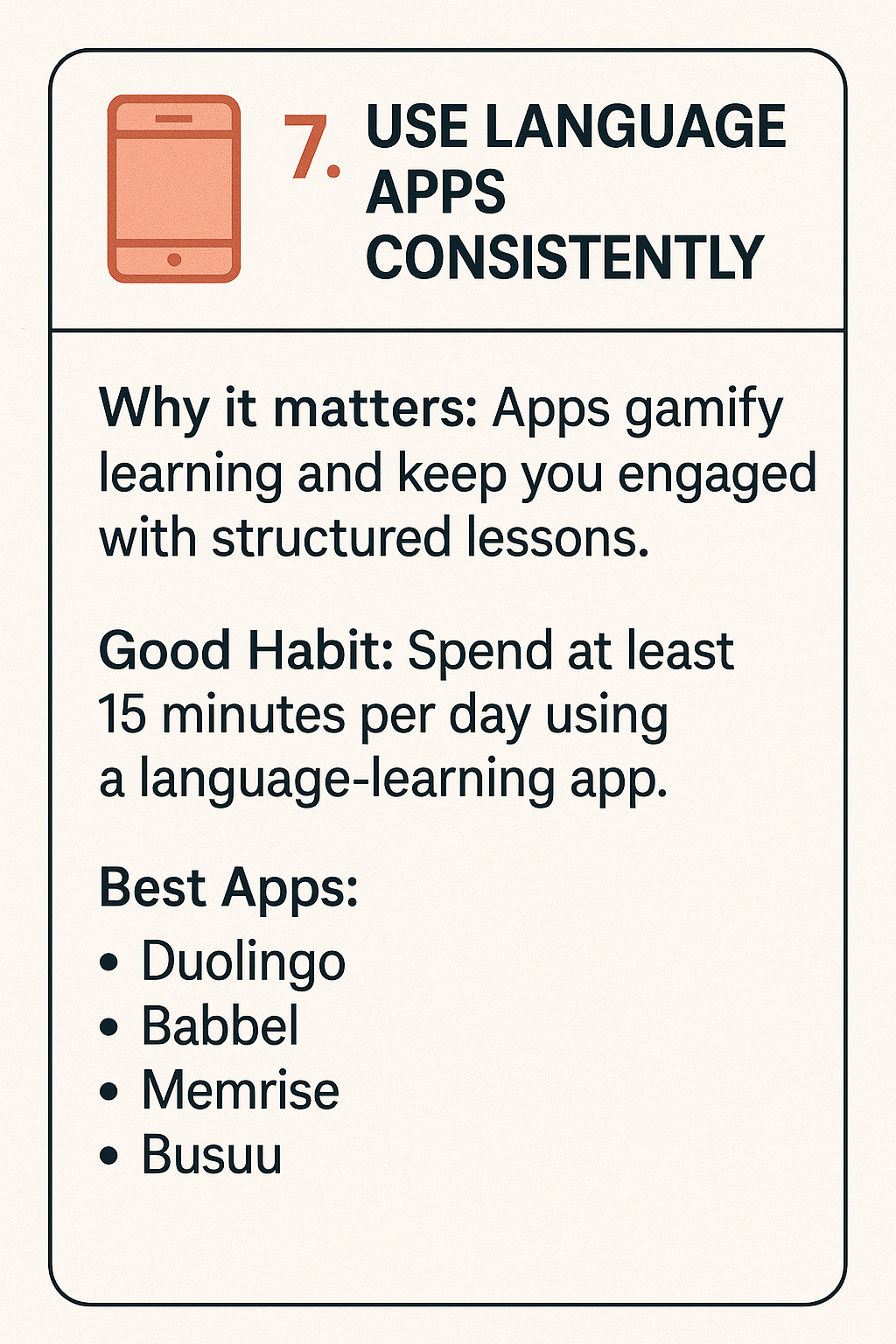
Why it matters:
Apps gamify learning and keep you engaged with structured lessons.
Good Habit:
Spend at least 15 minutes per day using a language-learning app.
Best Apps:
- Duolingo
- Babbel
- Memrise
- Busuu
👥 8. Engage in Real Conversations

Why it matters:
Real conversation practice is the fastest way to gain fluency and confidence.
Good Habit:
- Join local language meetups or clubs
- Talk to friends or tutors online
- Use social media in your target language
📌 9. Focus on Pronunciation Early

Why it matters:
Bad pronunciation can make you hard to understand, even if your grammar is perfect.
Good Habit:
- Use speech recognition tools in apps.
- Mimic native speakers.
- Record your voice and compare.
Tools:
- Google Translate (speech mode)
- Forvo (pronunciation dictionary)
- Elsa Speak (AI speech coach)
⏱️ 10. Be Consistent and Patient

Why it matters:
Language learning is a marathon, not a sprint. Skipping days breaks momentum.
Good Habit:
Build a daily learning routine. Even 20 minutes daily is more effective than 2 hours once a week.
Routine Idea:
- Morning: 10 minutes vocabulary
- Afternoon: 10 minutes reading/listening
- Evening: 10 minutes speaking or writing
🚫 What to Avoid in Language Learning
- Fear of Mistakes – Everyone makes mistakes. Don’t let fear stop your practice.
- Relying Only on Books – Real conversation is key. Books are good, but not enough.
- Translation Habit – Don’t translate everything from your mother tongue. Think directly in the new language.
- Skipping Practice – Skipping even 2–3 days breaks consistency.
✅ Final Thought
Building good language learning habits is the foundation for mastering any language. By speaking daily, reading aloud, listening actively, and staying consistent, you will improve fluency, confidence, and vocabulary naturally. Avoid common mistakes like skipping practice or being afraid to speak. Instead, create a routine that makes language learning a fun and lifelong habit





